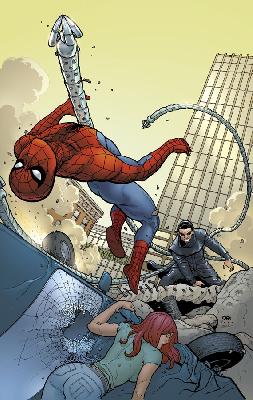Heroism is fascist!
Tim O’Neil has returned to tell us (again) why superheroes can’t be taken seriously:
In a lot of ways, this hearkens back to the “literature of ethics” conversation of a few months back. As we discussed then, the “literature of ethics” concept was good except for one teeny-tiny fact: there is no examination of ethical dilemma in 99.9% of all superhero books. Black and white, good and evil, are pretty much accepted as is, and any shades of grey are presented as mere obstacles to be overcome. So, when you pick up The Avengers or Superman, the unspoken assumption is that the powerful superbeings whose adventures take place therein are morally infallible creatures whose strange abilities give them the obligation to combat “evil” outside of the traditional constraints of our legal system… Which is why I just don’t think an intelligent, grown adult can seriously accept most superhero books on face value…
Ignoring the unsupported blanket statement1, the problem with Tim’s argument is that phrase, “at face value.” As David Fiore pointed out, “what intelligent adult accepts anything they read at face value?”
But the really weird thing about Tim’s argument is that it implies that it’s good for children to read pro-fascist literature and take it seriously. What?
1 The only reasonable answer to the claim that an arbitrarily large percentage of items in a certain category suck is to cite Sturgeon’s Law. “99.9% of X sucks” and “99.9% of everything sucks” are both cop-out statements, because they seek to avoid addressing specific problems by throwing generalizations at them and hoping they go away. They deserve each other. The bulk of Tim’s argument is based on such a cop-out generalization, so it’s hard to take too seriously. His real point seems to be that he prefers to read superhero comics in a childlike (uncritica)l manner rather than an adult (critical) manner, and his elaborate justifications merely obfuscate this.
